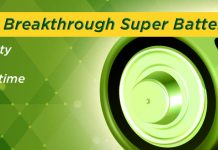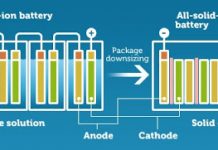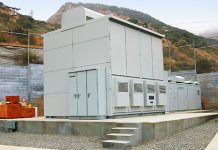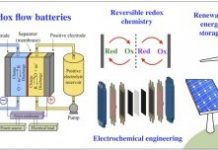Yesterday Axion Power International (AXWP.OB) announced the signing of a memorandum of understanding with Exide Technologies (XIDE) following fourteen months of negotiation and technical investigation. This alliance could prove to be a sea-change event for the domestic battery industry. Copies of the press release and an archived version of the subsequent investor conference call are available on Axion’s website.
As a former chairman of Axion’s board of directors and a very substantial Axion stockholder, I’ve been waiting for an agreement like this for a very long time. I’m delighted to see confirmation from Exide that my faith in Axion’s PbC technology, its management and its technical team were justified.
Over the last nine months I’ve written a series of articles on the energy storage sector in general and the battery industry in particular. My basic premise has been that none of the battery technologies we’ve relied on in the past are robust enough and cheap enough to satisfy the requirements of cleantech, the sixth industrial revolution. The result has been a race to fill the void as lead-acid battery manufacturers worked to improve performance and Li-ion battery developers worked to reduce costs. The prize to the winners will be major chunks of market share in an industry that expects explosive growth from $30 billion to over $100 billion per year in the next decade. In the words of Merrill Lynch analyst Steve Milunovich:
“. . . cleantech markets dwarf IT to the tune of two orders of magnitude. Unlike tech names, cleantech companies often don’t need huge unit growth to succeed – modest improvements mean more. New IT vendors often face a hurdle of a 5-10x improvement over incumbent technology to succeed while in cleantech doing the same amount of work with reduced CO2 emissions might be enough.”
Axion has always been unusual because there was never a question about whether its PbC technology worked. Early technical studies conclusively showed that replacing the lead-based negative electrode in a conventional lead-acid battery with a carbon electrode like you find in most supercapacitors had a tremendous impact on both cycle life and power. Two years ago, when Axion received the prestigious 2006 Technology Innovation Award for North America in the field of lead acid batteries, Frost & Sullivan noted that Axion’s PbC technology had:
“. . . the potential to revitalize the lead-acid battery industry by breathing new life into an established technology that was not well-suited to the requirements of important new applications like hybrid electric vehicles and renewable power.”
The real challenge has always been transitioning the science from a laboratory bench to a factory floor. The commercialization alliance with Exide is clear independent confirmation that Axion has succeeded where the vast majority of R&D companies fail.
Over the last couple of months the battery industry has been headline news as the Federal government adopted massive loan, grant and subsidy regimes for advanced battery technologies. While the mainstream press has focused most of its attention on the potential of plug-in vehicles, the enabling legislation also recognizes the crucial role that cost-effective energy storage will play in the development and implementation of the smart grid and the more widespread use of wind and solar power. The fundamental goals of all the recent legislation are to build a new domestic battery manufacturing infrastructure that will help liberate America from the economic tyranny of imported oil while enabling the more widespread use of alternative energy technologies and cutting carbon-dioxide emissions.
The biggest advantages Axion’s PbC technology offers are low cost and rapid deployment. As of today, there are no large-scale Li-ion battery manufacturing facilities in the U.S. and while a number of companies have disclosed plans to build new factories if Federal subsidies are made available to them, there are significant unanswered questions about whether the battery technology solutions these companies are proposing are cheap enough, robust enough and safe enough to warrant a multi-billion dollar implementation effort. Even if the hoped-for subsidies materialize and the proposed factories are built, the process of building the factories, perfecting manufacturing techniques, establishing reliable supply chains for imported raw materials, introducing new products and training an entire country to use those products will be a major undertaking.
In comparison, there are dozens of companies that already operate lead-acid battery factories in the U.S. and Axion’s PbC technology has now reached a point in the development process where it can be implemented in the existing factories starting immediately without substantial changes to existing equipment, components or manufacturing processes. So for the first time America has a real a choice between “sometime a few years from now” and today.
I love it when a plan comes together.
I cannot begin to predict the impact the new alliance will have on Axion or Exide. After giving pro-forma effect to the conversion of its outstanding preferred stock, Axion has 34.7 million shares outstanding and a market capitalization of roughly $31.2 million at yesterday’s closing price of $0.89. Exide, in comparison, has a market capitalization of roughly $364 million and annual sales of approximately $3.7 billion. The combination of Axion’s technical expertise in lead-carbon chemistry with Exide’s manufacturing, distribution and customer service prowess should be exciting. I certainly expect that the news will have a positive short-term impact on both companies and an even greater long-term impact as the pervasive scope of the alliance becomes clearer.
Disclosure: Author is a former director and executive officer of Axion Power International (AXWP.OB) and holds a large long position in its stock. He also holds a small long position in Exide Technologies (XIDE).
John L. Petersen, Esq. is a U.S. lawyer based in Switzerland who works as a partner in the law firm of Fefer Petersen & Cie and represents North American, European and Asian clients, principally in the ener
gy and alternative energy sectors. His international practice is limited to corporate securities and small company finance, where he focuses on guiding small growth-oriented companies through the corporate finance process, beginning with seed stage private placements, continuing through growth stage private financing and concluding with a reverse merger or public offering. Mr. Petersen is a 1979 graduate of the Notre Dame Law School and a 1976 graduate of Arizona State University. He was admitted to the Texas Bar Association in 1980 and licensed to practice as a CPA in 1981. From January 2004 through January 2008, he was securities counsel for and a director of Axion Power International, Inc. a small public company involved in advanced lead-carbon battery research and development.









good analysis